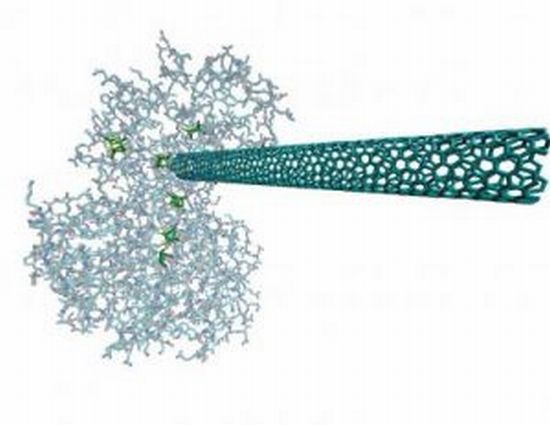
Researchers in Colorado are reporting the first successful ‘wiring up’ of hydrogenase enzymes. Those much-heralded proteins are envisioned as stars in a future hydrogen economy where they may serve as catalysts for hydrogen production and oxidation in fuel cells. Their report, describing a successful electrical connection between a carbon nanotube and hydrogenase, is scheduled for the Nov. issue of ACS’ Nano Letters, a monthly journal.
A hydrogen powered fuel cell has positive and negative ends just like a battery. It works by splitting hydrogen gas into its component protons and electrons at the negative electrode, which react with oxygen from air at the positive electrode. This produces electricity while leaving only water as a byproduct.
In the new study, Michael J. Heben, Paul W. King, and colleagues explain that bacterial enzymes called hydrogenases show promise as powerful catalysts for using hydrogen in fuel cells, which can produce electricity with virtually no pollution for motor vehicles, portable electronics, and other devices. However, scientists report difficulty incorporating these enzymes into electrical devices because the enzymes do not form good electrical connections with fuel cell components. Currently, precious metals, such as platinum, are typically needed to perform this catalysis.
The researchers combined hydrogenase enzymes with carbon nanotubes, submicroscopic strands of pure carbon that are excellent electrical conductors. In laboratory studies, the researchers demonstrated that a good electrical connection was established using photoluminescence spectroscopy measurements. These new ‘biohybrid’ conjugates could reduce the cost of fuel cells by reducing or eliminating the need for platinum and other costly metal components, they say.
Via: Physorg




